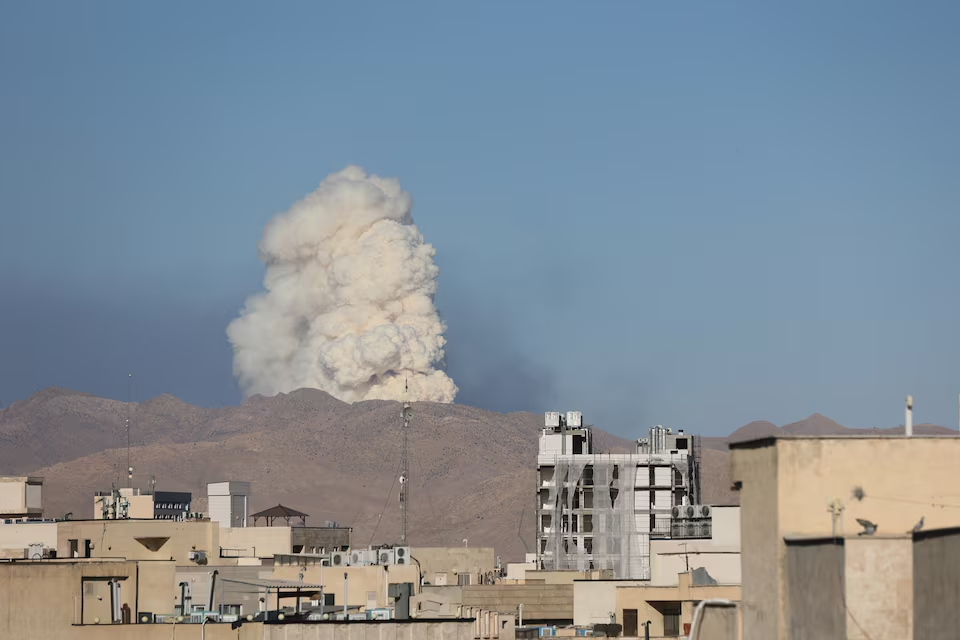
Israel bombed nuclear targets in Iran on Thursday and Iranian missiles hit an Israeli hospital overnight, as the week-old air war escalated with no sign yet of an off-ramp.
Following the strike that damaged the Soroka medical centre in Israel’s southern city of Beersheba, Prime Minister Benjamin Netanyahu said Tehran’s “tyrants” would pay the “full price”.
Defence Minister Israel Katz said the military had been instructed to intensify strikes on strategic-related targets in Tehran in order to eliminate the threat to Israel and destabilise the “Ayatollah regime”.
Netanyahu has said that Israel’s military attacks could result in the toppling of Iran’s leaders, and Israel would do whatever was necessary to remove the “existential threat” posed by Tehran.
Israeli Foreign Minister Gideon Saar, speaking to reporters outside the damaged hospital, said “regime change” in Tehran was not a goal the security cabinet had set “for the time being”.
Israel said on Thursday it had struck Iran’s Natanz and Isfahan nuclear sites.
It initially said it had also hit Bushehr, site of Iran’s only functioning nuclear power plant, but a spokesperson later said it was a mistake to have said this.
The potential consequences of an attack on the plant – contaminating the air and water – have long been a concern in the Gulf states.
The head of Russia’s nuclear energy corporation warned on Thursday that an Israeli attack on Bushehr could lead to a “Chornobyl-style catastrophe”, referring to the world’s worst nuclear disaster in 1986, when a reactor exploded at Chornobyl in Ukraine, then part of the Soviet Union.


